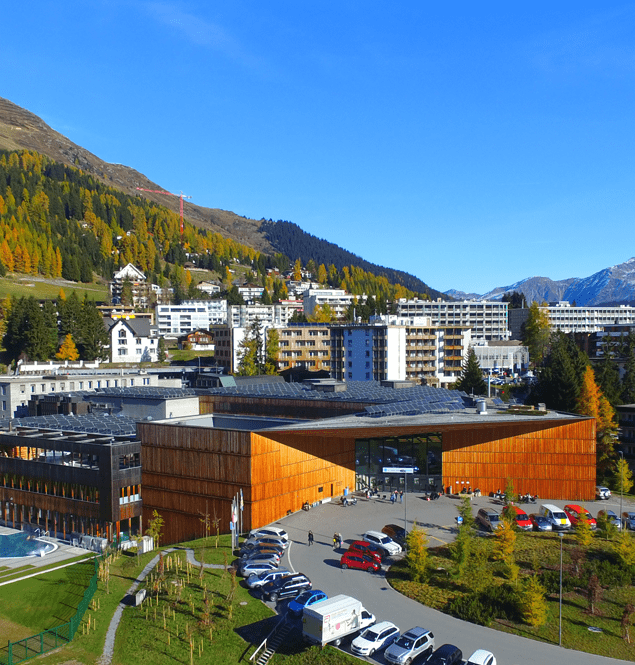3rd International Radar Aeroecology Conference
June 25-26, 2022 in Davos, Switzerland.
Thanks for joining IRAC 2022! Want to keep up with all things radar aeroecology? Join the mailing list at https://groups.google.com/g/radar-aeroecology.
We cordially invite you to the 3rd International Radar Aeroecology Conference (IRAC 2022) in Davos, Switzerland. The conference takes place on 25-26 June 2022, directly before the World Biodiversity Forum. We look forward to welcoming many of you in person in Davos, but we will also offer online participation and make special arrangements for online participants presenting from different time zones. The conference will be a full 2-day event with plenary presentations, a poster session, and possibilities for informal discussions and networking.
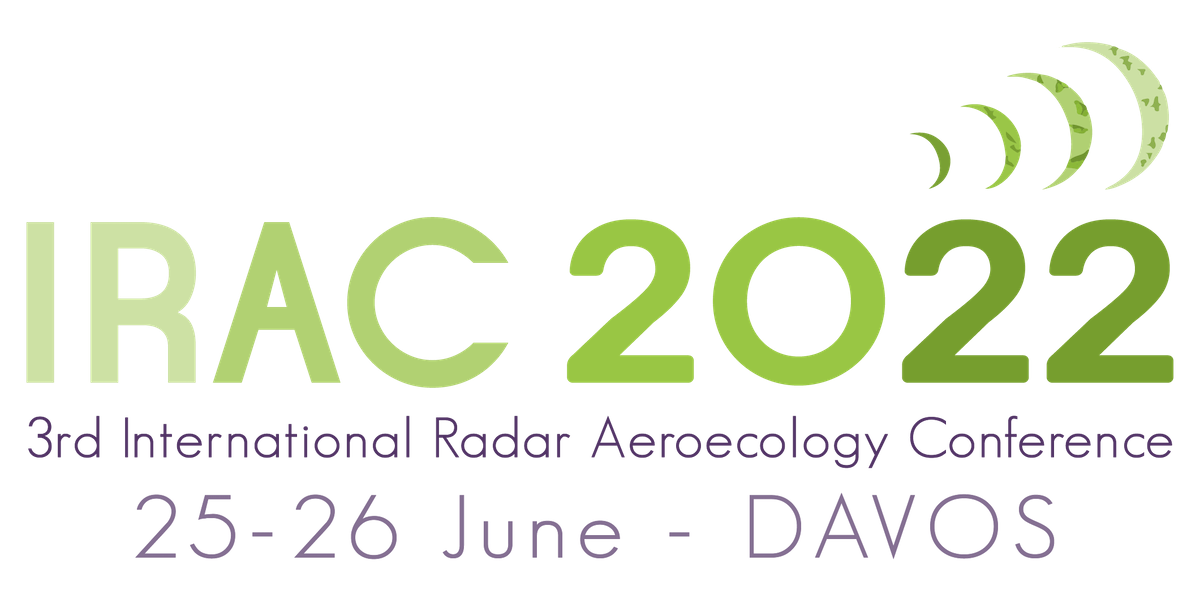
Thematic sessions
We invite proposals for oral and poster contributions, fitting one or more of the conference themes and presented as part of thematic sessions:
- Spatio-temporal movement patterns of birds, bats, and insects and their environmental influences
- Methodological advancements - classification and identification algorithms, radar technology, data infrastructure
- From radar aeroecology to biodiversity
- Applied radar aeroecology - the knowledge base for conservation and management
Keynote speakers
We have invited renowned speakers who will give an introductory overview for each session:
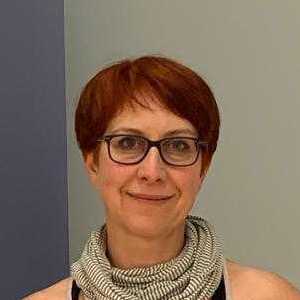 Silke Bauer - Silke is a senior researcher at the Swiss Ornithological institute, and her core research interests are large scale migration patterns and the multitude of ecological effects migrants can have on resident communities visited during their journeys.
Silke Bauer - Silke is a senior researcher at the Swiss Ornithological institute, and her core research interests are large scale migration patterns and the multitude of ecological effects migrants can have on resident communities visited during their journeys.
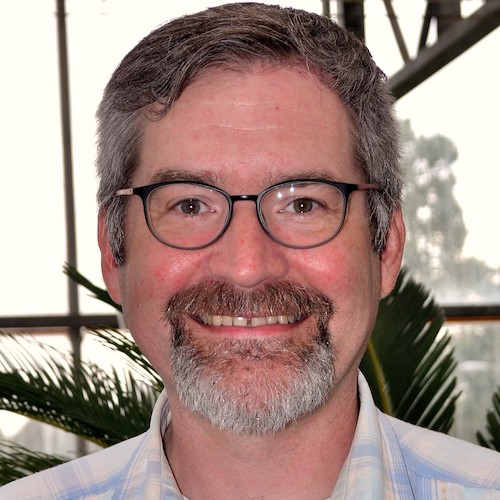 Jeff Buler - Jeff is professor at the Department of Entomology and Wildlife Ecology at the University of Delaware, where he established the Aeroecology Program in 2011. He is an international leader in the development of novel methods for using weather surveillance radars to study the broad-scale distribution, movement, and habitat use patterns of flying animals, particularly migratory birds.
Jeff Buler - Jeff is professor at the Department of Entomology and Wildlife Ecology at the University of Delaware, where he established the Aeroecology Program in 2011. He is an international leader in the development of novel methods for using weather surveillance radars to study the broad-scale distribution, movement, and habitat use patterns of flying animals, particularly migratory birds.
 Boya Gao - Boya is a post-doctor at plant protection college, Nanjing Agricultural University who researches insect migration and radar entomology.
Boya Gao - Boya is a post-doctor at plant protection college, Nanjing Agricultural University who researches insect migration and radar entomology.
 Felix Liechti - Felix (from the Swiss Ornithological Institute) is a passionate bird migration researcher for which he employs remote-sensing technology and miniaturized data-loggers.
Felix Liechti - Felix (from the Swiss Ornithological Institute) is a passionate bird migration researcher for which he employs remote-sensing technology and miniaturized data-loggers.
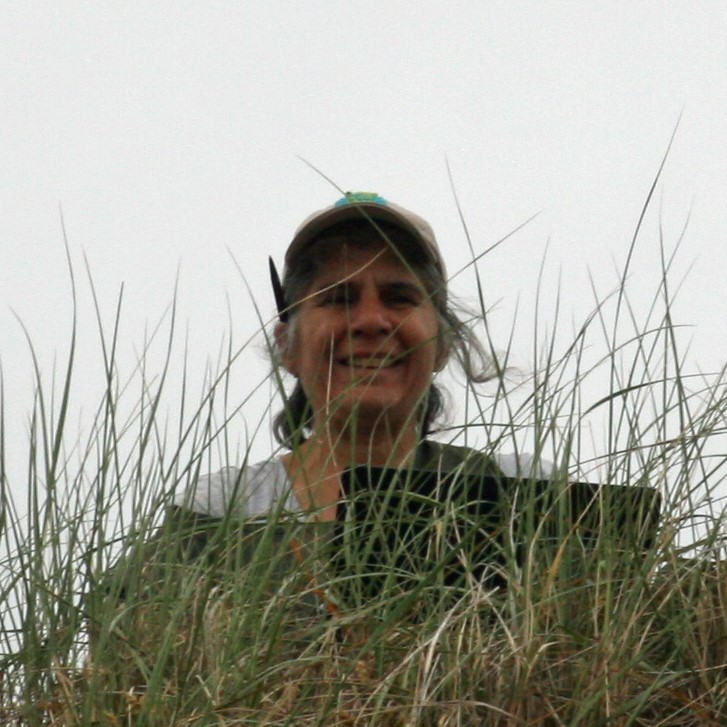 Judy Shamoun-Baranes - Judy is a professor at the Institute for Biodiversity and Ecosystem Dynamics at the University of Amsterdam and fascinated by animal movements and their biodiversity implications.
Judy Shamoun-Baranes - Judy is a professor at the Institute for Biodiversity and Ecosystem Dynamics at the University of Amsterdam and fascinated by animal movements and their biodiversity implications.
 Dan Sheldon - Dan is an associate professor of computer science at UMass Amherst who likes to develop new machine learning and statistical methods to learn about birds from weather radar.
Dan Sheldon - Dan is an associate professor of computer science at UMass Amherst who likes to develop new machine learning and statistical methods to learn about birds from weather radar.
Sponsors
We gratefully acknowledge the financial support of the following organizations:
Programme
Times are indicated in local times for Davos, Switzerland (CEST, UTC+02:00). See the current time in Davos.
An optional pre-conference bird watching excursion to the Flüela Pass (with chance to see snowfinches) is organized by Fränzi Korner-Nievergelt. Email irac2022@vogelwarte.ch if you want to join.
Day 1: Saturday, June 25
| 8:00-9:00 | Registration |
| 9:15-9:30 | Welcome |
Session 1.1
Spatio-temporal movement patterns of birds, bats, and insects and their environmental influences
Chair: Elske Tielens, remote chair: Bart Kranstauber
| 9:30-10:00 | Felix Liechti - Recent achievements and future challenges in radar ornithology keynote |
| 10:00-10:15 | Nir Sapir - Two radars in the desert - Scrutinizing bird migration dynamics over different timescales using retrospective comparison and operational prediction |
| 10:15-10:30 | Birgen Haest - Spatiotemporal movements of insects across Europe, quantified using a vertical-looking radar network |
| 10:30-11:00 | Coffee break |
Session 1.2
Chair: Raphael Nussbaumer, remote chair: Birgen Haest
| 11:00-11:15 | Yuval Werber - Finding bats in RADAR data: a novel approach based on Ecology, movement and machine learning |
| 11:15-11:30 | Fiona Lippert - Integrating deep learning with mechanistic modeling for spatio-temporal migration forecasts based on weather radar networks |
| 11:30-11:45 | Jarmo Koistinen - Bin-based polarimetric echo classification for spatially flexible aeroecological purposes in combination with citizen science |
| 11:45-12:00 | Bart Kranstauber - Incorporating seasonal differences in phenology is essential for accurate bird migration forecasts |
| 12:00-13:30 | Lunch break |
Session 1.3
Chair: Nadja Weisshaupt, remote chair: Cecilia Nilsson
| 13:30-14:00 | Dan Sheldon - Methodological advancements keynote remote |
| 14:00-14:15 | Valery Melnikov - Impacts of the differential phase upon transmission on radar variables from birds remote |
| 14:15-14:30 | Inbal Schekler - Automatic detection of bird flocks by weather radars |
| 14:30-14:45 | Gustavo Perez - Using spatio-temporal information in weather radar data to detect communal bird roosts remote |
| 14:45-15:15 | Coffee break |
Session 1.4
Chair: Maja Bradaric, remote chair: Cecilia Nilsson
| 15:15-15:30 | Yuting Deng - Quantifying phenological trends in aerial insectivore roosting behaviors in the Great Lakes region using weather surveillance radar |
| 15:30-15:45 | Fengyi Guo - Autumn stopover hotspots and multi-scale habitat associations of migratory landbirds in the eastern U.S. |
| 15:45-16:00 | Benjamin Van Doren - Linking acoustic monitoring and radar to capture the timing and intensity of bird migration remote |
| 16:00-16:30 | Break |
Session 1.5
Chair: Birgen Haest, remote chair: Cecilia Nilsson
| 16:30-17:15 | Jennifer Krauel - Patterns in high-altitude bat movement over Texas revealed by radar speed talk remote |
| Virginia Halterman - Patterns of flight altitudes for arriving spring migrants in the Gulf of Mexico region speed talk remote | |
| Simon Hirschhofer - High concentrations of migratory birds in Swiss-alpine valleys more frequent in pre- than postbreeding migration speed talk | |
| Thibault Désert - SEMAFOR project: remote sensing of avifauna using the French meteorological radar network speed talk | |
| Jens van Erp - Identifying fine-scale flight behaviour in 2D bird radar tracks: marine thermal soaring on the North Sea speed talk | |
| Abel Gyimesi - Avian avoidance of offshore wind turbines measured by radar speed talk | |
| 17:15-20:00 | Drinks & poster session |
Day 2: Sunday, June 26
Session 2
Methodological advancements - classification and identification algorithms, radar technology, data infrastructure
Chair: Yuval Werber, remote chair: Judy Shamoun-Baranes
| 9:00-9:30 | Jeff Buler - Advances in radar aeroecology applications for wildlife conservation and food security keynote |
| 9:30-9:45 | Bart Hoekstra - Fireworks disturbance across bird communities |
| 09:45-10:00 | William Kunin - Tracking desert locust swarms using dual-polarisation weather radar |
| 10:00-10:15 | Zhenhua Hao - Different migratory strategies in locusts and moths revealed by radar remote |
| 10:15-10:30 | Xu Shi - Prospects for monitoring bird migration along the East Asian-Australasian Flyway using weather radar speed talk remote |
| Lili Jia - Using radar to mitigate birdstrike risk in coastal airport on Bohai Bay speed talk remote | |
| Fanqi Gao - Migratory behavior of the fall armyworm in Israel and its outbreak potential in Europe speed talk remote | |
| 10:30-11:00 | Coffee break |
Session 3
From radar aeroecology to biodiversity
Chair: Inbal Schekler, remote chair: Judy Shamoun-Baranes
| 11:00-11:15 | Adriaan Dokter - Macro-demography of North America’s migratory birds |
| 11:15-11:30 | Hans van Gasteren - Validation of local bird radars used in military aviation |
| 11:30-11:45 | Arndt Wellbrock - Flying across the sea – possibilities and limitations of weather radar data for the understanding of bird migration over the Baltic Sea remote |
| 11:45-12:00 | Maja Bradarić - On the radar: offshore wind turbine curtailment informed by nocturnal bird migration predictions |
| 12:00-13:30 | Lunch break |
Session 4.1
Applied radar aeroecology - the knowledge base for conservation and management
Chair: Jens van Erp, remote chair: Peter Desmet
| 13:30-14:00 | Boya Gao - Migration basics for insects keynote remote |
| 14:00-14:15 | Theodore Zenzal - A bioenergetic model to facilitate migratory landbird conservation along the northern Gulf of Mexico coast remote |
| 14:15-14:30 | Elske Tielens - Spatial patterns in diurnal aerial insect biomass and landscape level drivers across the continental United States |
| 14:30-14:45 | Andrew Farnsworth - From data to action: BirdCast perspectives on transforming bird migration science to conservation planning remote |
| 14:45-15:15 | Coffee break |
Session 4.2
Chair: Yuting Deng, remote chair: Peter Desmet
| 15:15-15:30 | Raphaël Nussbaumer - Aerial and terrestrial biomass flows of migratory birds across the US |
| 15:30:15:45 | Christopher Hassall - Weather surveillance radar for biodiversity monitoring in the UK |
| 15:45-16:00 | Isabel Metz - Bird strike prevention based on radar information |
| 16:00-16:30 | Silke Bauer & Judy Shamoun-Baranes - Global movements under global changes keynote |
| 16:30-16:45 | Closing |
Posters
| 1 | Tsafra Evra - Aloft and on the ground: do bird radar data and constant effort bird ringing data of migrants in Eilat, Israel, correlate? |
| 2 | Itai Bloch - Combining radio-telemetry and radar measurements to reveal how insect abundance affects the movements of an aerial insectivore |
| 3 | Paolo Becciu - Between sea and desert: soaring migrants beneficially modulate their flight in relation to sea-breeze |
| 4 | Joseph Wayman - Assessing the impact of fireworks on urban birds using L-Band staring radar |
| 5 | Nadja Weisshaupt - The impact of hydrometeors on bird migration as observed by various remote sensing systems |
| 6 | Nadja Weisshaupt - Dealiasing of radial velocities based on interleaved dual-PRF measurements and bin-based polarimetric echo classification |
| 7 | Tom Carrard - Bird migration forecast: developing radar-based forecasts of bird migration over Switzerland |
| 8 | Yuval Werber - RADAR in a multisensory setup: a case study to assess the impact of an aerial deterrent |
| 9 | Jacco Leemans - Distinguishing birds from waves based on radar track characteristics |
| 10 | Birgen Haest - Climatic drivers of Bracken Cave (USA) bat migration phenology and demography |
| 11 | Jonne Kleyheeg-Hartman - Developing automatic radar-controlled wind turbine shutdown to reduce collision mortality of local breeding birds. |
| 12 | Peter Desmet - CROW: Visualize bird migration in your browser |
Abstracts
Abstracts of talks and posters.
Venue, travel and accommodation
The conference takes place at Davos Congress located at Talstrasse 49a, CH-7270 Davos Platz, Switzerland (view map).
Davos is a picturesque town in eastern Switzerland, the highest town in Europe at 1560m asl, and can easily be reached from Switzerland’s major cities and airports, by rail or road.
Davos offers unique and varied facilities for sport and leisure, both in summer and winter, renowned museums and galleries, and exceptional restaurants and shopping opportunities. Ninety hotels and more than a thousand holiday flats offer accommodation for everybody’s taste, requirements and budget.
See the World Biodiversity Forum page for more information on Davos, how to get there, accommodation, the environment and things to do in and around town.
In Switzerland, all measures and restrictions with regard to COVID-19 have been lifted and thus, there are no specific preparations needed for entry and travel within Switzerland. Still, we advise to remain cautious and use the standard hygienic measures such as keeping distance, regularly washing or sanitizing hands, or wearing a face mask (Federal Office of Public Health advice).
Code of conduct
Our conference is dedicated to providing a harassment-free conference experience for everyone, regardless of gender, gender identity and expression, age, sexual orientation, disability, physical appearance, body size, race, ethnicity, religion (or lack thereof), or technology choices. We do not tolerate harassment of conference participants in any form. Sexual language and imagery is not appropriate for any conference venue, including talks, workshops, parties, Twitter and other online media. Conference participants violating these rules may be sanctioned or expelled from the conference without a refund at the discretion of the conference organizers.
If you are being harassed or witnessed something inappropriate, would like to file a complaint, or have other concerns about the safety of participants, please do not hesitate to contact us at irac2022@vogelwarte.ch or anyone from the organizing committee.
Contact
Please contact us at irac2022@vogelwarte.ch with any questions that you may have regarding the conference, incl. your abstract submission, (informal) events you might want to organize (e.g. round-table discussions), etc.
Scientific committee: Silke Bauer, Adriaan Dokter, Andrew Farnsworth, Birgen Haest, Bart Kranstauber and Judy Shamoun-Baranes.
Organizing committee: GloBAM - Silke Bauer, Peter Desmet, Judy Shamoun-Baranes, Andrew Farnsworth and Jarmo Koistinen.



